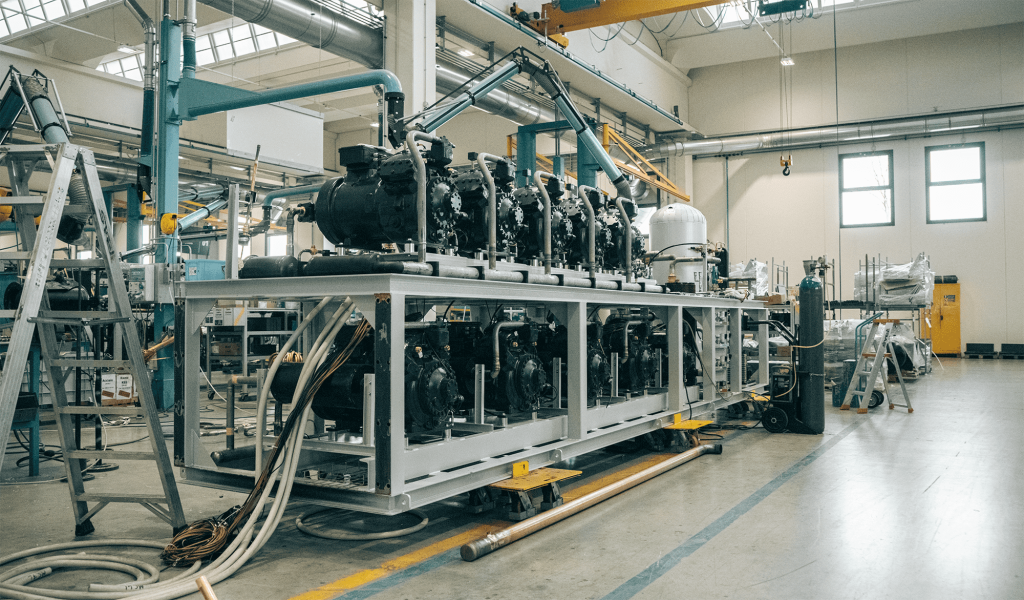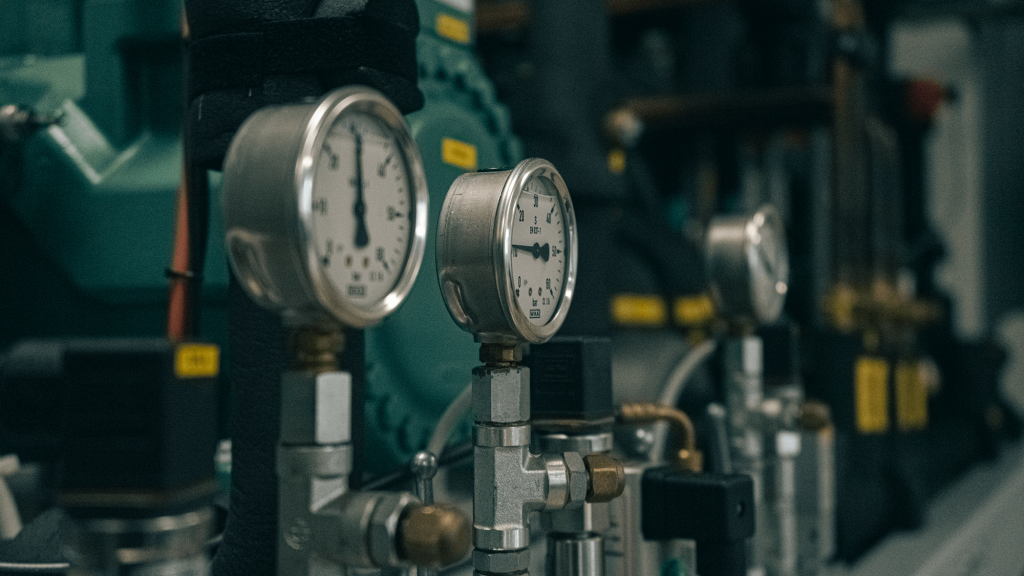Sustainable Refrigeration Systems: Overcoming Challenges from Traditional Refrigerants
What if some Refrigeration systems designed to preserve and protect are, in fact, harming our planet? Traditional refrigeration systems, which used to be crucial for the industry now face higher environmental impacts and operational costs. In a world focused on sustainability, these challenges demand immediate attention. How can businesses balance the immediate need for efficient refrigeration with the increasing demand for sustainability?
The answer lies in sustainable refrigeration systems that promise not only to transform refrigeration but to redefine industrial standards.
The Challenges Businesses Face with Traditional Refrigeration Systems
Environmental Impact of Traditional Refrigeration
The Carbon Footprint
Traditional refrigeration systems significantly contribute to greenhouse gas emissions. These systems often use refrigerants with high Global Warming Potential (GWP), which trap heat in the atmosphere and worsen climate change. Switching to sustainable refrigeration systems can reduce these emissions, helping to combat global warming.
Ozone Layer Depletion
Many conventional refrigerants, such as chlorofluorocarbons (CFCs) and hydrochlorofluorocarbons (HCFCs), are harmful to the ozone layer. Sustainable refrigeration alternatives, like CO2 systems, do not harm the ozone layer and are a safer choice for the environment.
Environmental Regulations
Using traditional refrigeration harms the environment. Governments worldwide are enacting stricter laws to reduce environmental impact, such as phasing out harmful refrigerants like CFCs and HCFCs. To comply with new regulations and avoid penalties, businesses should switch to sustainable refrigeration systems. This helps protect the environment and ensures compliance.
Energy Consumption in Traditional Refrigeration Systems
High Energy Usage
Traditional refrigeration systems are known for their high energy consumption. They require significant amounts of electricity to maintain the desired temperatures. This leads to increased operational costs and contributes to a larger carbon footprint. In the end, traditional systems are less sustainable.
Inefficiencies in Traditional Systems
Older refrigeration technologies often suffer from inefficiencies, such as poor insulation and outdated components. These inefficiencies cause the systems to work harder, consuming even more energy to achieve the same cooling effect. Upgrading to modern, energy-efficient systems can mitigate these issues and lower energy usage.
Comparison with Sustainable Alternatives
Sustainable refrigeration systems, such as those using CO2, are designed to be more energy-efficient. They incorporate advanced technologies that reduce electricity consumption and improve overall performance. Switching to these systems means that businesses can achieve significant energy savings and reduce their environmental impact.
Financial Implications
The high energy consumption of traditional refrigeration systems directly translates to higher utility bills. Investing in energy-efficient refrigeration not only reduces operational expenses but also supports long-term financial sustainability.
Operational Costs of Traditional Refrigeration Systems
High Installation Expenses
Traditional refrigeration systems often have high installation costs. These costs include the price of the equipment, the complex installation process, and the need for specialized labor. For many businesses, these upfront costs can be a significant financial burden.
Maintenance and Repair Costs
Maintaining traditional refrigeration systems can be costly and time-consuming. Regular maintenance is essential to ensure efficiency and prevent breakdowns. Although it often requires specialized technicians. Additionally, older systems are prone to frequent repairs, which increases operational expenses.
Long-Term Financial Impact
Traditional refrigeration systems are costly in the long run because of the expenses of installation, maintenance, repairs, and energy use. These ongoing costs can strain a company’s finances and reduce overall profitability. More sustainable, energy-efficient systems can reduce these financial pressures.
Cost Savings with Sustainable Systems
Investing in sustainable refrigeration systems, such as those using CO2, can lead to substantial cost savings. These systems typically have lower maintenance requirements, higher energy efficiency, and longer lifespans.

Technological Limitations of Traditional Refrigeration
Performance Issues
Traditional refrigeration systems often struggle to work well in very hot or very cold conditions. This can lead to higher costs for businesses and possible spoilage of products.
Outdated Components
Many older refrigeration systems use outdated components that are not as efficient or durable as modern alternatives. These older parts can cause frequent breakdowns and require more maintenance. Upgrading to systems with advanced technology can improve reliability and performance.
Limited Flexibility
Traditional refrigeration systems are not very flexible when it comes to adjusting their size and features to fit specific needs. Sustainable refrigeration systems, on the other hand, can be customized and scaled to meet a variety of demands more easily.
Innovation Gaps
Newer systems, such as those that use CO2, constantly undergo research and development to make them more efficient, reliable, and environmentally friendly.
Health and Safety Concerns with Traditional Refrigerants
Toxicity Risks
Many commonly used refrigerants, like CFCs, can be very harmful. They can cause serious health problems like breathing issues and skin irritation for workers. To keep everyone safe, strict safety rules and regular monitoring are essential.
Flammability Hazards
Some traditional refrigerants are highly flammable, which can create a fire hazard in industrial settings. Using these flammable substances requires strict safety measures and emergency plans. Switching to sustainable refrigerants can significantly reduce these risks.
Benefits of Sustainable Refrigerants
Sustainable refrigerants, like CO2, offer significant health and safety benefits. They are non-toxic and non-flammable, reducing the risks associated with traditional refrigerants. By transitioning to these safer alternatives, businesses can protect their employees and promote a safer working environment.
The Shift Towards CO2 Refrigeration Systems
Environmental Benefits
CO2 refrigeration systems offer significant environmental benefits. Unlike traditional refrigerants, CO2 has a very low Global Warming Potential (GWP) and does not deplete the ozone layer. This makes it an eco-friendly choice that helps businesses reduce their carbon footprint and contribute to global sustainability efforts.
Economic Advantages
CO2 refrigeration systems are cost-effective. They are highly energy-efficient, which leads to lower electricity bills and reduced operational costs over time. Businesses that switch to CO2 systems can achieve long-term savings.
Regulatory Compliance
CO2 refrigeration systems help businesses stay compliant with the environmental regulations. This proactive approach prevents potential fines and operational disruptions.
Technological Innovations
Recent advancements in CO2 refrigeration technology have improved its efficiency and reliability. Modern CO2 systems are designed to perform well under various conditions, making them suitable for a wide range of industrial applications. These innovations make CO2 refrigeration a robust and versatile solution.
Industry Adoption
Many industries and businesses are recognizing the benefits of CO2 refrigeration and making the switch. From supermarkets to food processing plants, businesses are implementing CO2 systems to enhance sustainability and efficiency. These real-world examples demonstrate the practical advantages and growing popularity of CO2 refrigeration.
The shift towards sustainable refrigeration is not just a trend. It is necessary if businesses aim to achieve long-term success and sustainability. Together, we can drive the industry towards a more sustainable future.
Building Connections
On LinkedIn

Become a CO² Specialist
Beijer Ref Academy will offer technicians and installers the opportunity to learn how to operate CO2 refrigeration systems in different configurations.


